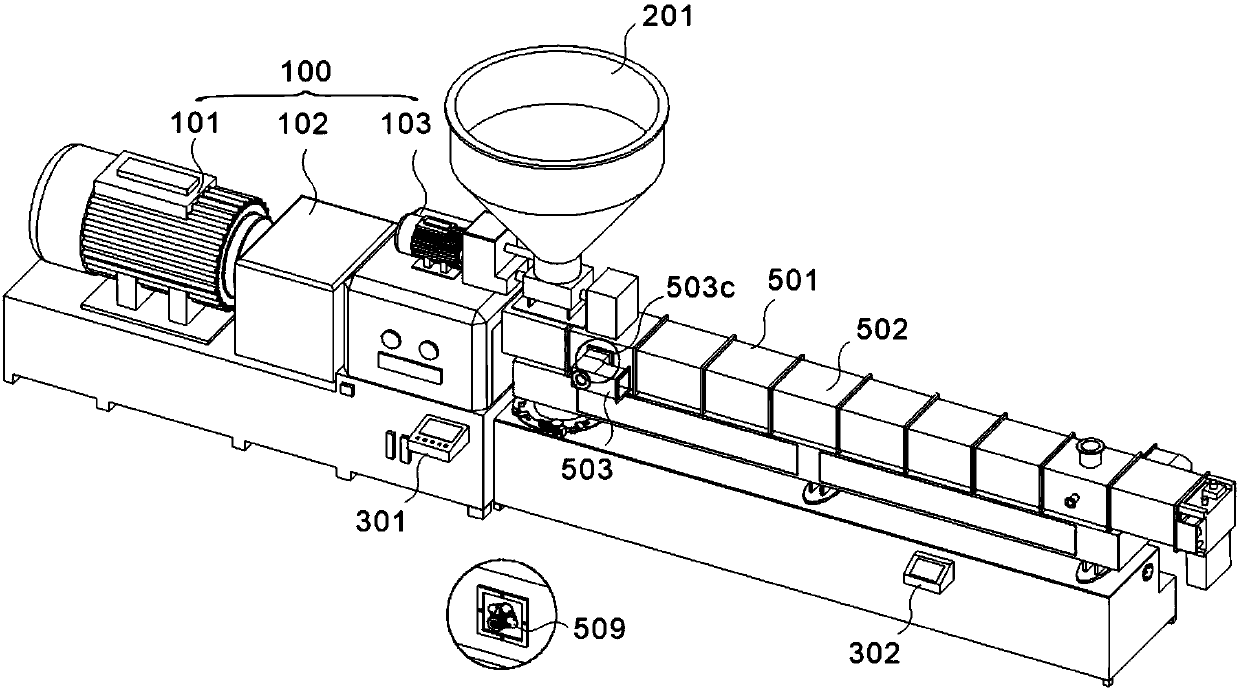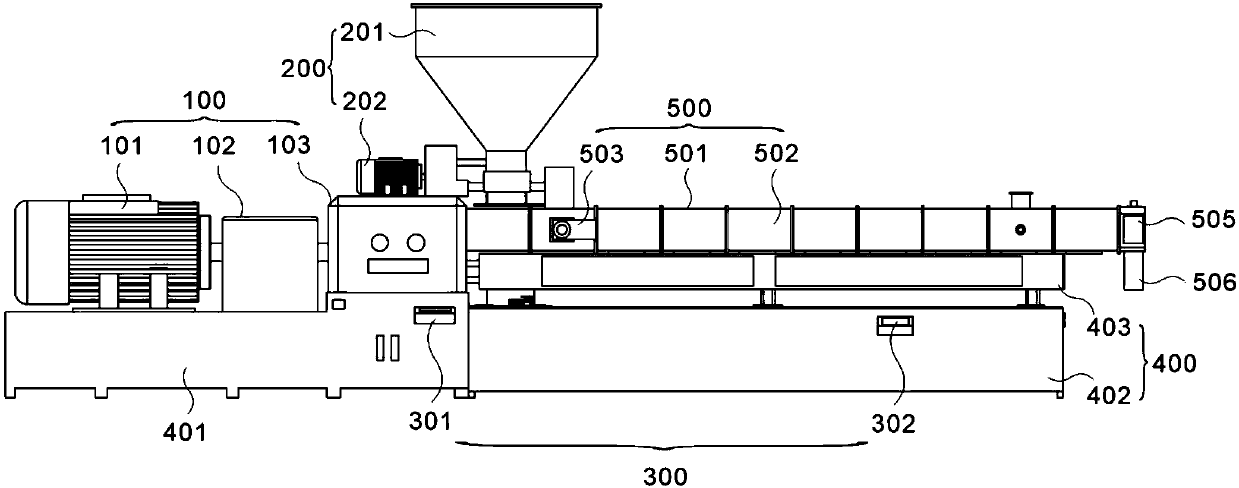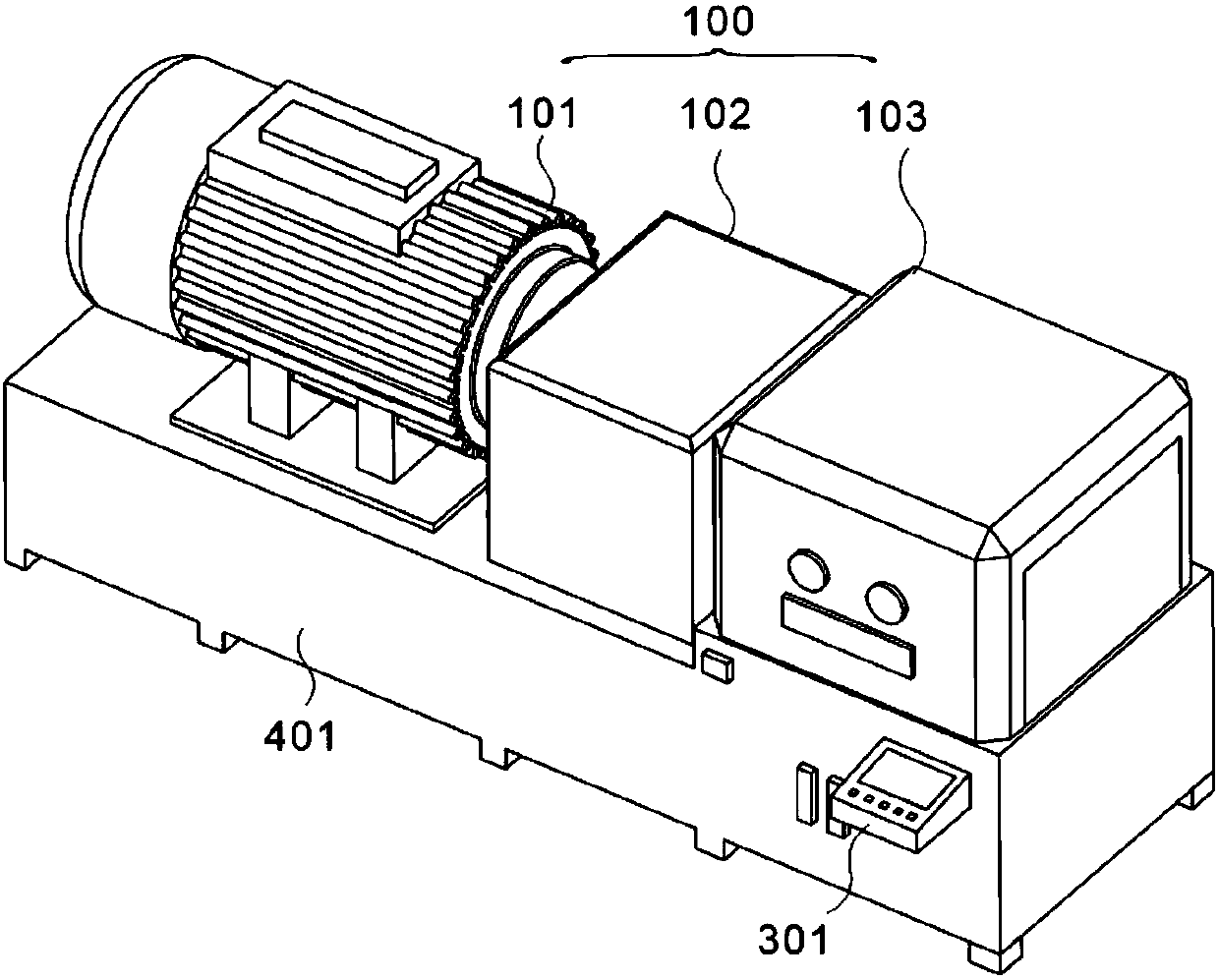Preparation method of ultrathin woven fabric with anti-ultraviolet-photocatalysis, antibacterial and water-proof functions
An anti-ultraviolet and anti-ultraviolet technology, applied in textile, fabric, rayon manufacturing, etc., can solve the problems of washing resistance, loss of elasticity, short energy, etc.
- Summary
- Abstract
- Description
- Claims
- Application Information
AI Technical Summary
Problems solved by technology
Method used
Image
Examples
Embodiment 1
[0042] With 20 parts by weight of polyester DTY and 80 parts by weight of anti-ultraviolet / antibacterial polyester DTY as fiber raw materials, the designed material is made through weaving, shaping, dyeing and finishing, and sewing processes. Anti-ultraviolet and antibacterial polyester is made of anti-ultraviolet and antibacterial functional masterbatch by anti-ultraviolet and antibacterial functional powder, which is prepared into anti-ultraviolet and antibacterial polyester by adding online masterbatch through spinning.
[0043] The anti-ultraviolet and antibacterial functional powder includes modified nitrogen-doped titanium dioxide. Its preparation process is,
[0044] Nitrogen-doped titanium dioxide with a nitrogen doping amount of 14% was placed under a UV lamp for 3 hours, and then placed in a 1.5% mass concentration of 3-(trimethoxysilyl)propyl-dimethyloctadecyl Put in the ammonium chloride solution for 5 minutes, take it out and place it at 90° C. for 12 hours to ob...
Embodiment 2
[0058] With 50 parts by weight of polyester DTY and 50 parts by weight of anti-ultraviolet / antibacterial polyester DTY as fiber raw materials, the designed material is made through weaving, shaping, dyeing and finishing, and sewing processes. Anti-ultraviolet and antibacterial polyester is made of anti-ultraviolet and antibacterial functional masterbatch by anti-ultraviolet and antibacterial functional powder, which is prepared into anti-ultraviolet and antibacterial polyester by adding online masterbatch through spinning.
[0059] The anti-ultraviolet and antibacterial functional powder includes modified nitrogen-doped titanium dioxide. Its preparation process is,
[0060] Nitrogen-doped titanium dioxide with a nitrogen doping amount of 15% was placed under a UV lamp for 3 h, and then placed in a 1.0% mass concentration of 3-(trimethoxysilyl)propyl-dimethyloctadecyl Put in the ammonium chloride solution for 4 minutes, take it out and place it at 95° C. for 10 hours to obtain...
Embodiment 3
[0073] With 80 parts by weight of polyester DTY and 20 parts by weight of anti-ultraviolet / antibacterial polyester DTY as fiber raw materials, the designed material is made through weaving, shaping, dyeing and finishing, and sewing processes. Anti-ultraviolet and antibacterial polyester is made of anti-ultraviolet and antibacterial functional masterbatch by anti-ultraviolet and antibacterial functional powder, which is prepared into anti-ultraviolet and antibacterial polyester by adding online masterbatch through spinning.
[0074] The anti-ultraviolet and antibacterial functional powder includes modified nitrogen-doped titanium dioxide. Its preparation process is,
[0075] Nitrogen-doped titanium dioxide with a nitrogen doping amount of 13% was placed under a UV lamp for 4 hours, and then placed in a 1.0% mass concentration of 3-(trimethoxysilyl)propyl-dimethyloctadecyl Put in the ammonium chloride solution for 5 minutes, take it out and place it at 90° C. for 11 hours to ob...
PUM
| Property | Measurement | Unit |
|---|---|---|
| Particle size | aaaaa | aaaaa |
| Length | aaaaa | aaaaa |
| Bottom diameter | aaaaa | aaaaa |
Abstract
Description
Claims
Application Information
 Login to View More
Login to View More - Generate Ideas
- Intellectual Property
- Life Sciences
- Materials
- Tech Scout
- Unparalleled Data Quality
- Higher Quality Content
- 60% Fewer Hallucinations
Browse by: Latest US Patents, China's latest patents, Technical Efficacy Thesaurus, Application Domain, Technology Topic, Popular Technical Reports.
© 2025 PatSnap. All rights reserved.Legal|Privacy policy|Modern Slavery Act Transparency Statement|Sitemap|About US| Contact US: help@patsnap.com



